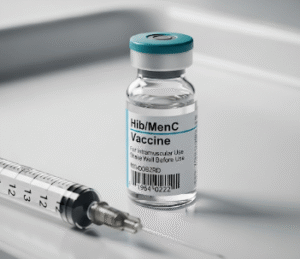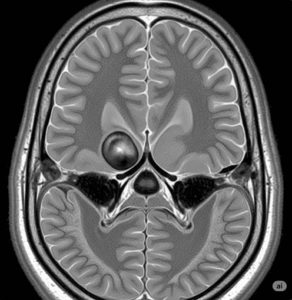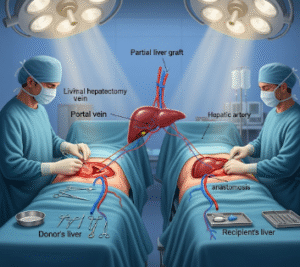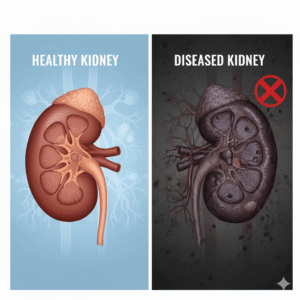Overview
Mesothelioma is a rare and aggressive cancer that affects the thin lining of the lungs, chest, abdomen, or heart (the mesothelium). It is most commonly caused by long-term asbestos exposure, which damages mesothelial cells over time. Mesothelioma often presents at an advanced stage, making treatment challenging.
In Korea, the disease is uncommon but significant, as industrial workers in shipbuilding, construction, and manufacturing industries were historically exposed to asbestos. Korea has banned asbestos since 2009, but cases of mesothelioma are still diagnosed due to the long latency period (20–50 years). Korean hospitals provide multidisciplinary care including surgery, chemotherapy, immunotherapy, and palliative support, with specialized programs for occupational disease patients.
What is Mesothelioma?
Mesothelioma is a malignant tumor of the mesothelium, usually affecting the pleura (lungs) or peritoneum (abdomen). It is highly aggressive, with a poor survival rate if untreated.
Symptoms
- Persistent chest pain
- Shortness of breath
- Chronic cough
- Abdominal swelling (if peritoneal mesothelioma)
- Unexplained weight loss
- Fatigue
- Pleural effusion (fluid buildup in lungs)
Causes
- Asbestos exposure (primary cause)
- Environmental asbestos contamination (older buildings, factories)
- Occupational exposure in shipyards, construction, or insulation industries
- Genetic predisposition (rare cases)
Risk Factors
- Prolonged asbestos exposure
- Living near asbestos factories or mines
- Age (usually >50 years old)
- Male gender (higher occupational exposure)
- Smoking (worsens lung damage though not a direct cause)
Complications
- Severe breathing difficulties
- Extensive pleural effusion requiring repeated drainage
- Spread to other organs (liver, bones, brain)
- Limited treatment response at advanced stages
Prevention
- Avoiding asbestos exposure completely
- Regular health check-ups for workers with past exposure
- Early chest imaging and monitoring in high-risk individuals
- Strict occupational health regulations (well-enforced in Korea)
Treatment Options in Korea
Diagnosis
- Chest X-ray and CT scan to detect tumors
- Thoracentesis (fluid analysis)
- Thoracoscopy with biopsy for definitive diagnosis
- PET-CT for staging
Medical Treatments
- Chemotherapy: Standard regimen is pemetrexed + cisplatin (available in Korean cancer hospitals)
- Immunotherapy: Checkpoint inhibitors (nivolumab, pembrolizumab) increasingly used for advanced cases
- Targeted therapy: Ongoing clinical trials in Korea
Surgical or Advanced Therapies
- Pleurectomy/decortication (removing diseased pleura)
- Extrapleural pneumonectomy (in severe cases, lung removal)
- Cytoreductive surgery with Hyperthermic Intraperitoneal Chemotherapy (HIPEC) for peritoneal mesothelioma
- Radiation therapy for pain control and local tumor management
Rehabilitation and Support
- Pulmonary rehabilitation to improve breathing
- Pain management and palliative care programs
- Psychological support and occupational disease compensation systems
- Long-term follow-up for recurrence













